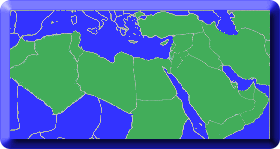
Topics in Middle Eastern and North African Economies
Document Type
Article
Publication Date
9-1-2017
Journal Title
Topics in Middle Eastern and North African Economies
Volume
19
Issue
2
Publisher
Middle East Economic Association and Loyola University Chicago
Abstract
This paper examines the gender wage gaps along the wage distribution in Egypt using individual data from the labor market panel surveys 1998, 2006 and 2012 and a quantile regression approach. Results show that in average female’s hourly wage is significantly less than that of males. While the wage gap in average is in favor of men it is decreasing with time and with education. Across quantiles the effect of being a female on hourly wages is negative, however this gap is higher at the lower and highest quantiles as compared to the middle ones. Indicating the presence of glass ceiling as well as sticky floors. Results also showed that household characteristics and location matter for the gap at higher quintile i.e. for the glass ceiling phenomena while the gap at the lower quantiles i.e. the sticky floor could be attributed to other unobservable related to location and social context. In societies like Egypt social context may enable males to compete better in the labor market. Hence resulting in women being paid less. Thus, key policy options must include not simply the usual policies to improve women’s productivity but policies that promote gender equity in hiring, and in the workplace. Moreover, policy options need to be extended out of the labor market and into the household to help women overcome unobservable that trap them in low-paying jobs.
ISSN
2334-282X
Recommended Citation
Nazier, Hanan, "The conditional gender wage gap in Egypt: premium or penalty?". Topics in Middle Eastern and North African Economies, electronic journal, 19, 2, Middle East Economic Association and Loyola University Chicago, 2017, http://www.luc.edu/orgs/meea/
Creative Commons License

This work is licensed under a Creative Commons Attribution-Noncommercial-No Derivative Works 3.0 License.
Copyright Statement
© 2017 The Authors



Comments
Presentation of the articles in the Topics in Middle Eastern and North African Economies was made possible by a limited license granted to Loyola University Chicago and Middle East Economics Association from the authors who have retained all copyrights in the articles.